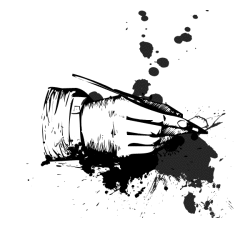 I’ve been meaning to post a blog for a while on my favorite courses. As an educator, I regularly reflect on the courses I had as an undergraduate (something I think is important for teachers to do regularly). I also want to specifically thank UC Irvine’s Humanities Core program for my success as a student and scholar. Despite taking the class over a decade ago, Humanities Core always comes up when I think about my undergraduate coursework. So I can easily say the course was effective and impactful. During my new freshman orientation, I was placed in the course, because it fulfilled requirements for humanities majors (history at UCI is in the School of the Humanities) and it satisfied the lower division writing requirement for general education. However, it was much more than something that fulfilled a requirement. I’d say that Humanities Core laid the foundation for my later success as an undergraduate and graduate student, my work as a researcher, and my job as an educator. So in this blog post, I’d share with you all why Humanities Core was the best course I ever took. *** No offense to any of my former teachers and professors reading this blog.
I’ve been meaning to post a blog for a while on my favorite courses. As an educator, I regularly reflect on the courses I had as an undergraduate (something I think is important for teachers to do regularly). I also want to specifically thank UC Irvine’s Humanities Core program for my success as a student and scholar. Despite taking the class over a decade ago, Humanities Core always comes up when I think about my undergraduate coursework. So I can easily say the course was effective and impactful. During my new freshman orientation, I was placed in the course, because it fulfilled requirements for humanities majors (history at UCI is in the School of the Humanities) and it satisfied the lower division writing requirement for general education. However, it was much more than something that fulfilled a requirement. I’d say that Humanities Core laid the foundation for my later success as an undergraduate and graduate student, my work as a researcher, and my job as an educator. So in this blog post, I’d share with you all why Humanities Core was the best course I ever took. *** No offense to any of my former teachers and professors reading this blog.
Humanities Core is a year long interdisciplinary course that is taught by a team professors across the humanities (such as art history, history, philosophy, and literature). The year typically revolves around a theme, and I believe that the theme for my year was the “journey.” Although it had a theme, the material was incredibly diverse and varied. That year, I read the work of David Hume, Plato, the Chinese epic Journey into the West, and the work of Freud. I watched Hitchock’s Rebecca, Hiroshima mon amour and the opera Madama Butterfly. I learned about the Aztecs, William Bradford’s religious beliefs, Cabeza de Vaca’s experiences in the New World and was introduced (briefly) to Chicana/o studies. In addition to content, the course had a substantial writing component which meant that the course was worth 8 credits (or two courses) per term. So this was much more than just a year long survey of the humanities, it was a sustained effort in reading, critical thinking and writing in my first year of college.
I believe that the structure of Humanities Core was incredibly in developing my critical thinking skills and writing. It was one of the few courses that truly balanced content and writing instruction. I still remember the lecture given by a philosopher Terence Parsons on ‘a priori’ and ‘a posteriori’ knowledge following a reading of Hume’s Dialogues Concerning Natural Religion. The follow up in the writing seminar on argumentation helped turn the lecture material into something that would help my writing. Looking back, I see that the intent of the reading assignments, lecture and writing assignment was to make us think about how we make arguments. When we read historical works like that of William Bradford and Cabeza de Vaca, we were not just learning content. We learned how these historical figures legitimized and justified what they wrote. We also learned that these texts were primary sources to be used in making our writing effective.
The teaching assistants/writing instructors for the course were typically advanced graduate students from throughout the humanities. I don’t remember if it was luck or if I was placed in writing seminars with historians, but I was. In either case, I believe this positively affected my writing as a young social scientist. I owe a great deal of my writing training to Robert Blackman who I had both in Humanities Core (and later as a history instructor). I learned that when you quote or cite texts it is to support your argument and not to use quotes as a crutch. It was about using/analyzing a text (such as the diary of William Bradford) as a means of providing evidence. Essentially, I learned how to find/use evidence to discuss some form of historical, social or cultural phenomena. Oh yea, and I learned how to use the Chicago style of citation not MLA (thankfully!).
I could go on and on about how great of a course it was, but I won’t. While this was ‘Humanities’ Core, I believe that this course laid the foundation for my social science training (I declared sociology as a second major as a junior). In conclusion, when I reflect on my time in Humanities Core, I don’t just remember what I learned. I remember that I love learning. It reminds me of why I went into research and why I enjoy teaching the subjects I care about.
To my fellow educators reading this via social media, what was your favorite class?





